We are truly in the golden age of AI. What was once considered new and luxurious has now become an essential part of everyday life. From shopping to communicating to, yes, even testing, the use of artificial intelligence is happening everywhere.
Like most growing technologies, AI continues to evolve at a rapid pace. For certifications, that means moving beyond just proctoring and onto advanced test development and item generation. Exams used to be static, but not anymore. Today, questions can evolve in real-time.
As generative AI (GenAI) continues to grow, so too does its potential to revolutionize certification testing. From automating item generation to personalizing exam experiences, GenAI offers unprecedented opportunities. However, navigating this new frontier requires careful consideration of its implications, both promising and challenging.
Let’s take a look at what your organization needs to consider when implementing GenAI into its testing program.
The Power of Generative AI
GenAI’s core strength lies in its ability to produce unique content, making it a natural fit for the demanding world of certification exams. It has many potential benefits for professional organizations, including:
- Automated Item Generation: GenAI can generate a vast array of question types, including multiple-choice, true/false, short answer, and more. It can also create new items that adhere to specific psychometric properties and difficulty levels, providing a continuous supply of fresh questions that also mitigates test-taker memorization.
- Enhanced Item Bank Management and Security: With GenAI, organizations can expand and refresh their item banks more frequently. This reduces the risk of exam content being stolen or shared and enhances exam security by making it harder for cheating to occur.
- Adaptive Testing and Personalized Assessment: By analyzing a candidate’s performance in real-time, GenAI can dynamically select future questions that are appropriately challenging, providing a more precise measurement of candidate’s true proficiency. This personalized approach not only makes the exam experience more engaging but also improves the accuracy of what the exam is trying to measure.
- Simulated Performance-Based Assessments: GenAI can also create realistic simulations, such as a nursing certification exam where patient scenarios are generated. This allows candidates to demonstrate their diagnostic and treatment expertise in a dynamic and interactive environment.
- Pre-Assessment and Preparation Tools: Beyond the formal exam, GenAI can be used to create personalized study materials, practice tests, and even tutoring systems. These tools can help candidates identify their knowledge gaps and focus their preparation, ultimately leading to higher success rates and better-prepared professionals entering the field.
- Data-Driven Insights and Analytics: GenAI can analyze vast datasets of exam performance, identifying patterns in candidate responses, common misconceptions, and areas where training materials might need improvement. This provides professional organizations with invaluable insights to refine their certification programs and educational offerings, ensuring they remain relevant and effective.
The Pitfalls of Generative AI
While there is no denying that the promise of GenAI is captivating, its implementation in high-stakes professional certification testing demands strict attention to a unique set of challenges, including:
- Validity and Reliability: The most important consideration is making sure that AI-generated content measures what it’s supposed to measure and is as reliable as human-crafted items. Psychometricians can help by reviewing the questions to confirm the quality and fairness of AI-generated questions.
- Bias Amplification and Fairness: GenAI models learn from the data they’re trained on, so if this data contains biases, it could inadvertently perpetuate or even amplify them in the questions it generates. Professional organizations must implement robust bias detection and mitigation strategies, including diverse training data, algorithmic auditing, and human oversight.
- Transparency: For high-stakes exams, understanding why a particular question was generated or why a candidate received a certain score is crucial. That’s why transparency is crucial in order to prevent trust from being eroded.
- Security and Cheating: The power of GenAI to generate content also presents a unique challenge for exam security. Professional organizations need to invest in advanced AI-powered proctoring and anomaly detection systems in order to evolve their security protocols and stay ahead of potential malicious uses of GenAI.
- Lack of Human Oversight: GenAI is not a replacement for human expertise. Subject matter experts will continue to play an important role in reviewing, refining, and validating AI-generated content to consider ethical considerations and real-world applicability.
How to Move Forward with GenAI
For professional organizations, embracing GenAI in certification testing is not a matter of “if,” but “how.” Which is why you need to have a strategic approach that could include the following:
- Start Small: Begin implementing GenAI in low-stakes exams, practice tests, or pilot programs. That way, you can learn from these initial implementations, gather data, and refine the approach before scaling up to high-stakes exams.
- Collaborate with AI Experts and Psychometricians: If you partner with psychometricians and experts in AI, you can validate the effectiveness of your AI-generated content. This expertise can be crucial for developing unbiased questions that accurately measure the aptitude of candidates.
- Train Staff: Create and equip certification development teams with the knowledge and skills to effectively leverage GenAI tools. This will develop an oversight committee that can constantly monitor test creation.
- Develop Transparent Policies and Guidelines: Establish clear policies for the use of GenAI in exam development, including guidelines for bias detection, human review, and intellectual property. Communicate these policies transparently to candidates and stakeholders.
- Maintain a Human-Centric Approach: Always remember that the ultimate goal is to accurately assess human competence. GenAI should augment, not replace, human judgment and ethical oversight to maintain fairness, validity, and trust.
Generative AI presents an incredible opportunity for professional organizations to modernize and enhance their certification testing programs. By thoughtfully addressing the ethical considerations, prioritizing validation, and embracing a collaborative, human-centered approach, GenAI can become a powerful tool to uphold professional standards and certify the next generation of qualified experts.
Let’s talk about how Kryterion can help you navigate the GenAI journey. Our test development and delivery platforms and expert psychometricians are here every step of the way as you embrace the future of testing.
About Kryterion
Kryterion Inc. is a global leader in innovative testing and credentialing solutions, helping organizations across various sectors develop and manage their assessments with our advanced test development platform and multi-modal delivery solutions. Established in 2001, Kryterion offers secure, integrated services and extensive support, empowering candidates to demonstrate skills and achieve success in world-class careers.






